Rich Selection of Powerful Films From Across the Arctic Region
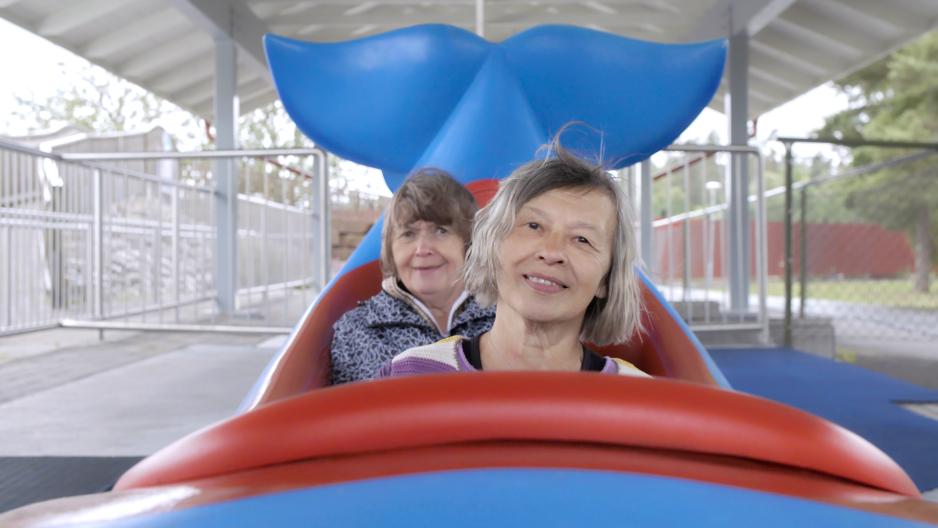

This week, the Tromsø International Film Festival offers new films from all eight Arctic countries. From miracles, wonder, and love – to art in geopolitical turbulence, past traumas, and gaining a foothold in the new world. These are some of the keywords for this year’s range.
The age of wonder is not over.
Two religious sisters from Lakselvdalen in Troms, Northern Norway, are experiencing signs from above.
When May wants to move to Sweden to live closer to Kari, one apartment reveals itself as “the one” to buy.
The sisters are then shocked to meet the realtor of the apartment, who they assume to be a stranger. However, she is a dead ringer for their big sister, who committed suicide 30 years earlier.
As if that was not enough, they also share a birth date and the nickname ‘Lita.’ The odd woman also grew up close to the sisters on the other side of the fjord.
In the search for an explanation, the sisters are joined by Director Maria Fredriksson.
That is how The Gullspång Miracle kicks off – which opens the ‘Films from the North’ program during Tromsø International Film Festival (TIFF) 15th-21st January.
The film had its world premiere last year at the Tribeca Film Festival in New York and will have its Norwegian premiere today, Tuesday.
“The story about the sisters is distinctly Norwegian and Northern Norwegian. Thus, TIFF is the perfect place to show it to the Norwegian audience for the first time,” says Director Fredriksson.
Growing film industry in the North
Films from the North includes a large variety of films with both documentary and fictional entries to life in the Arctic.
The film depictions – short and long – arise from northern parts of Norway, Sweden, Finland, Russia, and Canada, as well as Iceland, Greenland, and Alaska.
This year’s program has 12 feature films, a record-high number. These are selected from twice as many registered films as last year.
“An important aim for Films from the North is to contribute to the development of the regional film industry, so this is an exciting development that we and the actors in the industry have worked for over many years,” says Program Director Astrid Aure.
“Although we will see annual fluctuations, I consider this a sign that the northern industry is heading forward at full speed.”
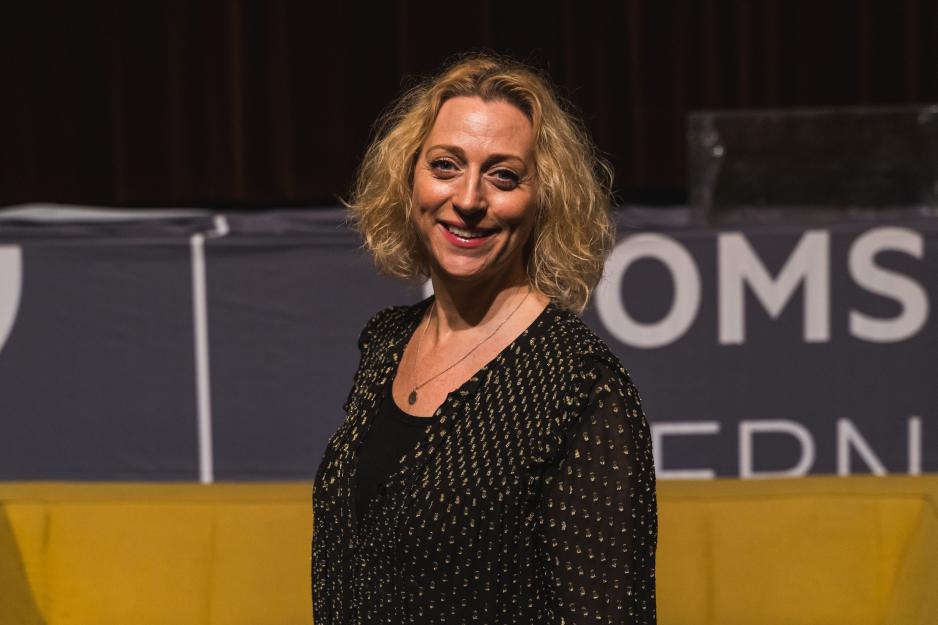
Northern indigenous perspectives
Stories from northern indigenous peoples are strongly represented in this year’s program, which was also the case during TIFF 2023.
Three short and three feature Sámi films will be showcased. In addition, several films of and about other northern indigenous peoples will also be featured. Two of these, Eallogierdu – The Tundra Within Me and One with the Whale, will also be shown digitally for Norwegian audiences.
“Three Sámi feature films – and of this caliber – is a remarkable feat delivered by a young and relatively small industry. As a festival in Sápmi, it is natural to focus on films made by Sámi and other northern indigenous peoples, and I am following the strong development in this part of the film industry with great interest,” says Aure.
She also points out that one of the five short film programs has ongoing truth and reconciliation processes as a framework. This includes four documentaries exploring the consequences of the colonization of Sápmi, Greenland, and Inuit areas in Canada.
“Truth and reconciliation are big words, and these processes are complex and demanding. If anything, I believe in the power of film to go beyond these words and help us manage the unmanageable. These four films expand our understanding and invite dialogue,” says the program director.
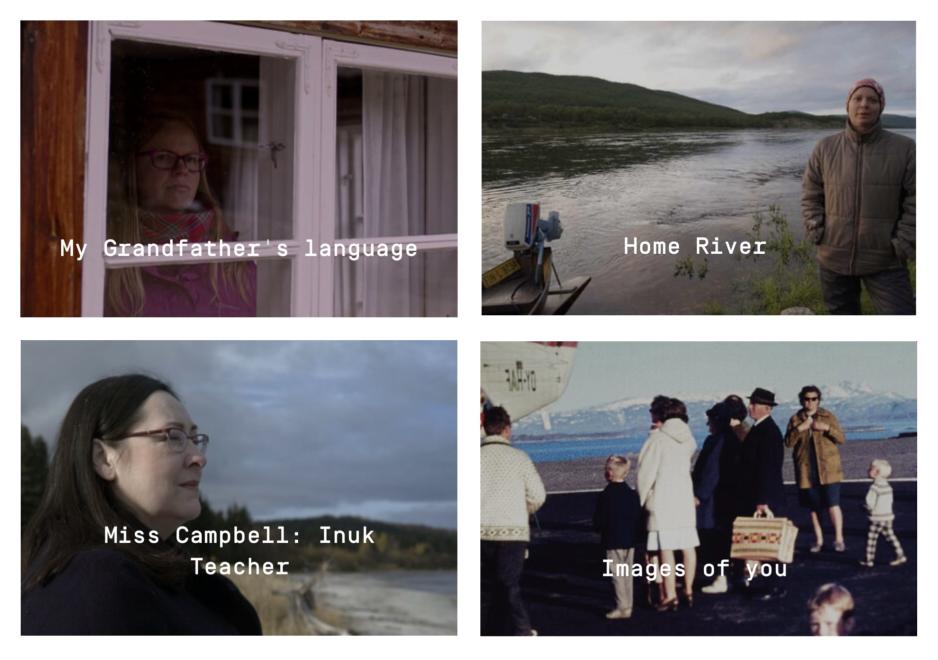
Short film programme 1: Truth and Reconciliation?
– My Grandfather’s language, from the Finnish side of Sápmi, is about taking one’s ancestors’ language back and introducing it to one’s own family. Director: Jukka Vuorela-Morottaja.
– In Home River, also from the Finnish side of Sápmi, three Sámi women fight for the traditional use of the Deatnu River and their culture. In the face of restrictions for fishing in the river, they file a historic lawsuit against the Finnish state. Directors: Kati Eriksen and Scott Thornton.
– Miss Campell: Inuk Teacher tells the story of the figurehead for a local Inuit-run education system in Canada. Director: Heather Campbell.
– Images of you asks “Can you speak to your grandmother about colonialism?”. We meet grandmother Bodil, who worked as a school teacher in Greenland in the 1960s, at a time when the Danish government tried to ‘danicize’ the Inuits. Director: Louise Hollerup.
Feature-length
Eallogierdu – The Tundra Within Me is a contemporary drama that tackles themes such as love, heritage, and spiritual strength.
After living many years in Oslo, Lena returns to the northern Finnmark plains in Sápmi with her young son. As an artist, she wishes to explore the gender roles within reindeer husbandry.
While working on the beautiful, snow-covered plain, Lena and the reindeer herder Máhtte fall for each other. However, his mother, the matriarch Gáren, strongly resists the relationship. At the same time, Lena is haunted by past choices, and she must figure out if Máhtte’s and her life can be united.
“I hope that Eallogierdu will contribute to a more diverse perspective on the áami community,” says Director Sara Margrethe Oskal.
* The film will also be digitally featured on tiff.no.
Along partly similar lines, Je’ vida follows a woman who travels from the south to the north – to her hometown in the Finnish part of Sápmi.
Ilda does not want to go back but must clear out her childhood home after the death of her mother. She is accompanied by a young cousin she barely knows. With an underlying, boiling rage, Ilda burns all personal items in the house. The absence of sentimentality shocks the cousin.
Yet, the past cannot be wiped out. Old memories flood over Ilda. From growing up in a loving Skolt Sámi family to when the state ripped her away and placed her in a boarding school. From her teenage years, which were about being “more Finnish than Finns.’
In sober black and white tones, Je’ vida depicts a strong story about shame, marginalization, and the after-effects of losing culture and identity.
This is the first-ever feature film in the Skolte Sámi language, which is at serious risk. The director is Katja Gauriloff.
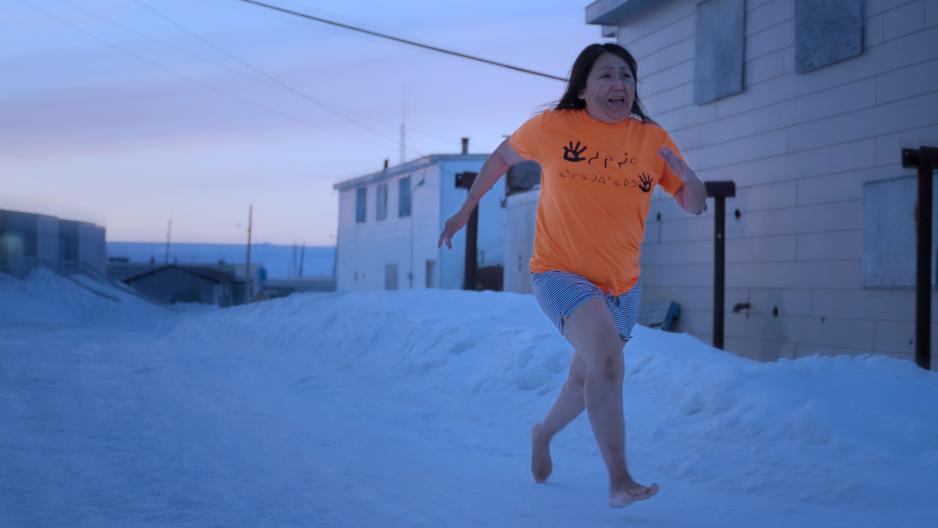
Tautuktavuk – What We See takes place in the grey area between fiction and reality.
During the COVID pandemic, two sisters, played by the directors Lucy Tulugarjuk and Carol Kunnuk, try to process traumatic experiences. In their own ways, but still together.
They grew up in Igloolik in Nunavut, Canada’s northernmost territory. As adults, one still lives in Nunavut, while the other is in Montreal. The film follows their video meetings with, at times, challenging discussions about sexual abuse in their childhood.
While Uyarak (Tulugarjuk) sees many questions rising, Saqpinak (Kunnuk) awaits to share her story until they are finally reunited in Igloolik.
Through their experiences, the film explores persisting trauma in Inuit communities, collective resistance against injustice, and shared solace. See the trailer here.
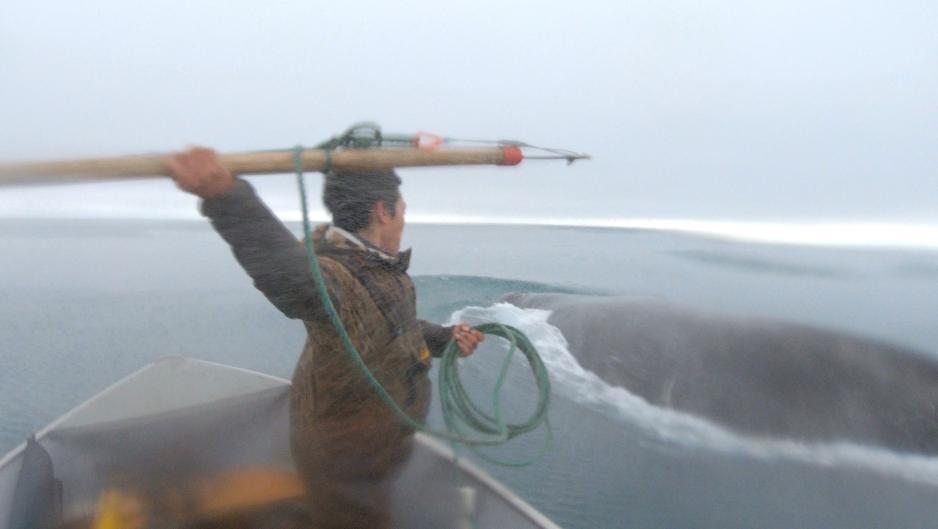
One with the Whale depicts a family’s battle to rebuild identity and protect its culture in the modern world.
For the Yup’ik people on St. Lawrence, a small island west of Alaska in the Bering Strait, whaling is a matter of life and death.
When Chris Apasskingok becomes the youngest person to ever catch a whale for his village, it generates ecstatic feedback locally. His mother proudly shares the news on Facebook. To her surprise, it triggers thousands of keyboard activists and online trolls, who send Chris both hate messages and death threats.
In a cross-fire of climate change, food security, online bullying, and centuries of racially motivated attacks from outsiders, the Apassingok family tries to find a new foothold.
The film, directed by Peter Chelkowski and Jim Wickens, is created in collaboration with Siberian Yup’ik.
* The film will also be digitally featured on tiff.no. See the trailer here.
Other feature films
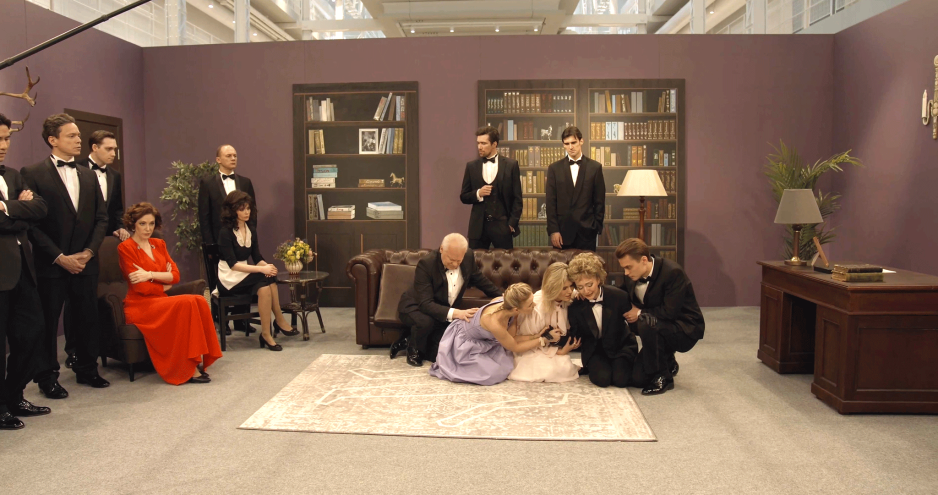
The documentary Soviet Barbara – the Story of Ragnar Kjartansson in Moscow offers a mix of contemporary art, geopolitics, and sharp political satire.
We follow the Icelandic artist Ragnar Kjartnsson, who launches a scenic performance at a new oligarch-owned art museum in Moscow. The performance will recreate the American soap Santa Barbara in Russian. The show took post-Soviet Russia by storm in the early 1990s.
In all, 100 episodes are to be produced, one each day. However, shortly after the opening, Russia goes for a full-scale invasion of Ukraine, and Kjartansson finds himself in a moral dilemma.
“Soviet Barbara provides a stimulating glimpse of art attempting dialogue across cultural and political borders, only to find war is one thing that shuts down such conversation,” writes Variety.
The film is directed by Gaukur Úlfarsson. See trailer here.
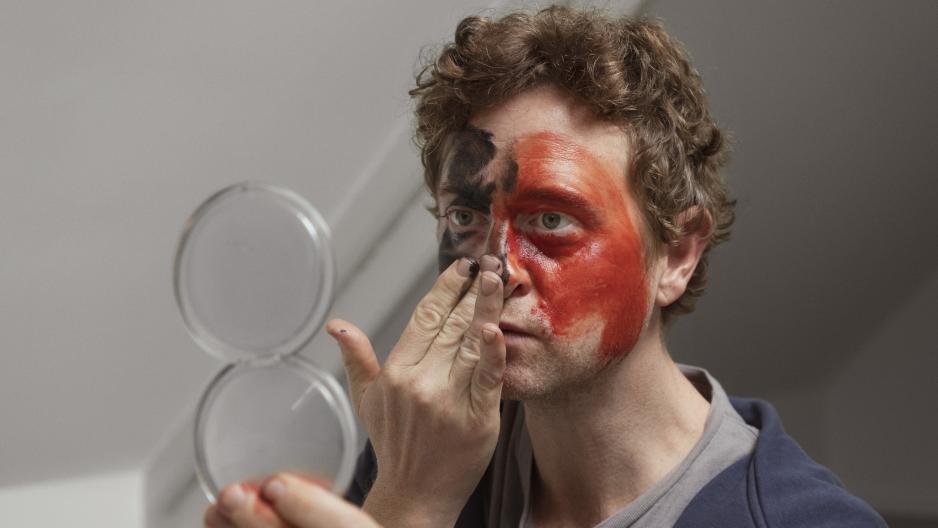
Kalak is about a man fleeing his own past.
As a teenager, Jan was sexually abused by his father. As an adult, he becomes a nurse and moves to Greenland with his family. In Nuuk, Jan tries to connect with the culture through sexual relations.
When someone calls him a ‘kalak’, a Greenlandic word with the double meaning ‘real’ and ‘dirty’ Greenlander, he carries it as a badge of honor. But finally, he must confront his father.
The film is based on the Norwegian-Danish author Kim Leine’s partly self-biographical novel of the same name. It is directed by Isabella Eklöf, who insightfully depicts the human complex psyche. See the trailer here.
Additional short films
In the short format, TIFF is offering a total of 25 Northern films, which are competing to win the Tromsø Palm award. In addition, six short films from young directors and film students in the North will be featured.
High North News is an independent newspaper published by the High North Center at Nord University in Bodø, Norway.